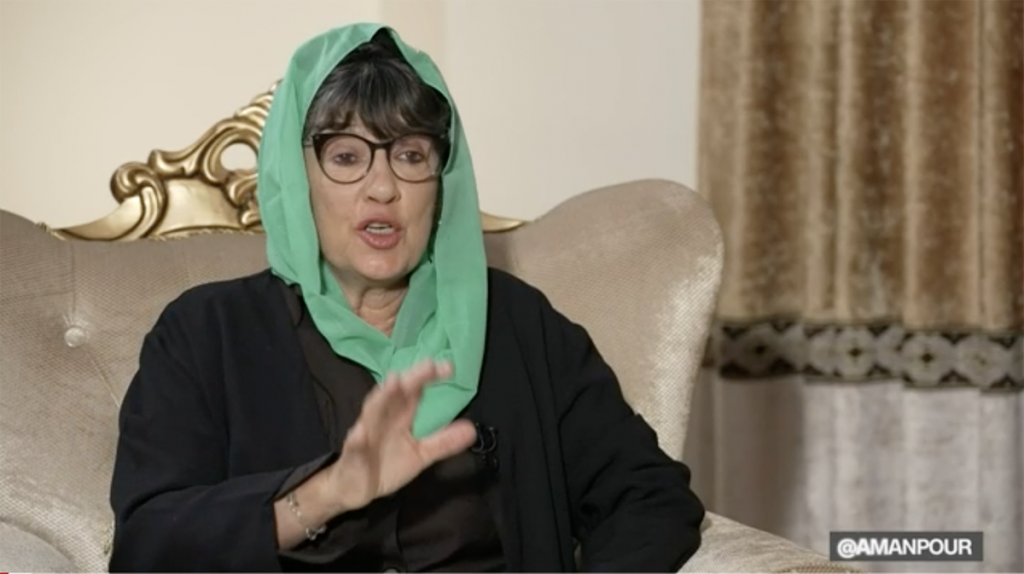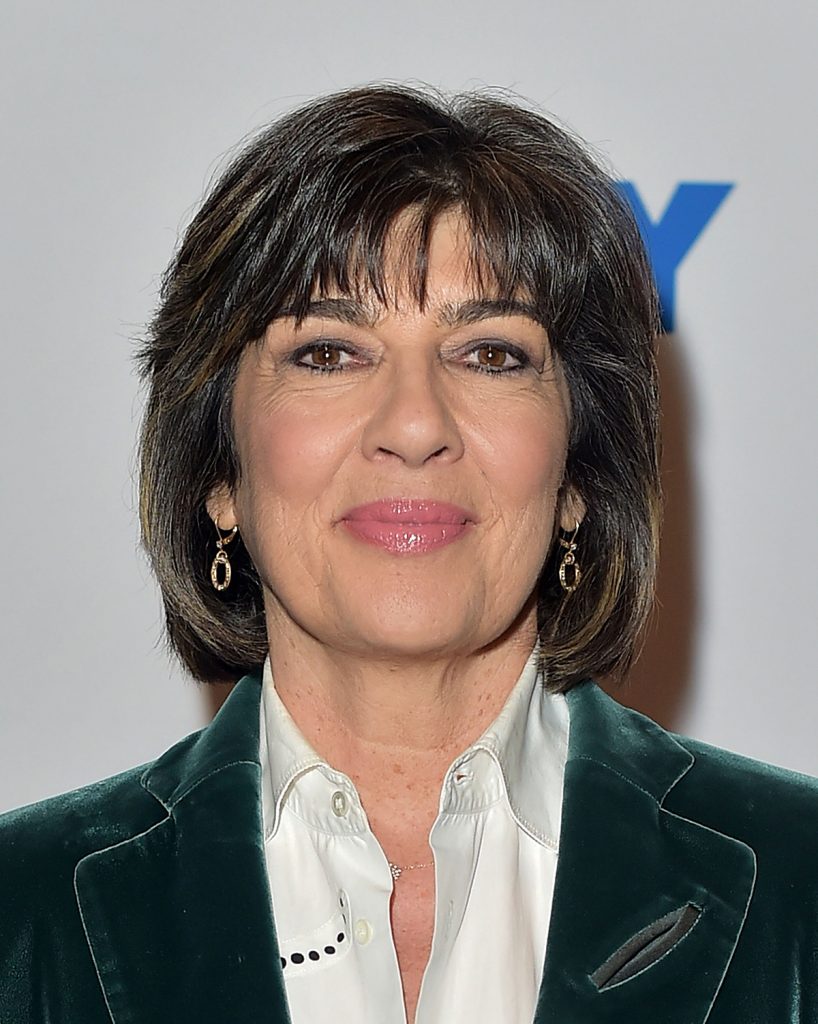Understanding Ovarian Cancer
- Nothing can stop CNN star journalist Christiane Amanpour, 64, from reporting the news, not even stage 2 ovarian cancer.
- Just six months after her last chemotherapy treatment, Amanpour is back to doing what she does best: hard news reporting. She recently sat down for an exclusive interview with a senior Taliban official.
- Ovarian cancer has often been called the "cancer that whispers" since women often don't experience symptoms until the disease has reached its late stages. Luckily for Amanpour, she caught her ovarian cancer at stage 2.
In fact, she recently sat down with Sirajuddin Haqqani, Afghanistan's acting interior minister and the Taliban's co-deputy leader since 2016, to discuss the group's promise to let young girls back into high schools.
Read MoreEven though this is like second nature to Amanpour, she says she hasn't faced anything like ovarian cancer.
"I've spent my career covering genocides in Bosnia and Rwanda, wars in Afghanistan, Iraq all really dangerous stuff," Amanpour, 64, told People during an exclusive interview last month. "And I've survived all that. But this is very different."
She then went on to say that undergoing such an emotional journey required help. And her 22-year-old son Darius John (his father is her ex-husband, former U.S. Assistant Secretary of State James Rubin), along with other loved ones and her medical experts, have been there for her as she faced the "invisible killer" known as ovarian cancer.
"I let my friends and family take care of me," she said. "That part was a pleasure and a privilege and something very different for me. I allowed myself to be vulnerable and feel those normal emotions."
And now, just six months after her last chemotherapy treatment, Amanpour is back to doing what she does best: hard news reporting. In March, she spent two weeks in Ukraine covering the Russian invasion.
She’s now back in Afghanistan covering the Taliban.

"I hadn't faced shooting and shelling in a while," she said. "That was incredibly important to be able to get back in the field."
Christiane Amanpour's Cancer Battle
Christiane Amanpour was diagnosed with stage 2 ovarian clear cell carcinoma on May 5, 2021. The diagnosis came after a visit to her doctor because she sensed something was “off” with her body. During the screening, doctors found a grapefruit-sized cyst on her right ovary.
"I would not be swayed when I felt a pain that was unusual, and I pursued it until the very end of getting my first ultrasound, which is the benchmark for then having a baseline to know whether you've caught it early in time and therefore 'cure' it, or not," she said during an interview last fall with Good Morning America veteran journalist and fellow cancer survivor, Robin Roberts.
Ten days after her diagnosis, Amanpour underwent a major surgery followed by 18 weeks of chemotherapy.
"It's now the end of my chemotherapy, tomorrow is my last session," she said in September, adding that treatments had been "fatiguing (and) tiring, and emotionally wearing."
Amanpour is now in remission, but the road to recovery wasn’t easy.

"I felt the humility of not being able to be in control, not feeling that I needed to be in control, but knowing that this is bigger than me, it's bigger than anyone who has these types of illnesses and to give myself over to the care of the experts and that's what I did," she said. "I think that was incredibly important for me to understand."
And in true journalistic fashion, she's sharing her story to educate other women about ovarian cancer and encourage them to advocate for themselves when it comes to their health.
"I want women to understand they must pay attention to their bodies," she told Roberts, a breast cancer survivor. "Whatever feels abnormal to them in terms of what they know to be their body's normal state, they need to pursue it.”
"(Ovarian cancer) is very difficult to detect and that's what I want women to understand,” Amanpour added.
Understanding Ovarian Cancer
Ovarian cancer has often been called the "cancer that whispers" since women often don't experience symptoms until the disease has reached its late stages. Luckily for Christiane Amanpour, she caught her ovarian cancer at stage 2.
The term ovarian cancer refers to a number of different tumors that grow in the ovary. The ovaries produce the sex hormone, estrogen, as well as eggs. Every woman has two ovaries, one on either side of her uterus. The fallopian tube picks up the egg from the ovary and carries it to the uterus for fertilization.
Genetic Testing Can Offer Valuable Information About Ovarian Cancer Risk
Many ovarian cancers actually begin in the fallopian tubes. A few cancerous cells first grow on the fallopian tubes and then, as the fallopian tubes brush over the ovary, these cells stick to the ovaries and eventually grow to form a tumor.
Dr. Monica Vetter, a gynecological oncologist at Baptist Health Medical Group in Lexington, Ky., previously told SurvivorNet that most ovarian cancer cases are caught in stage 3 or stage 4, as it's a difficult cancer to screen for. And about 70% to 80% of those women are going to have their cancer come back within the first five years.
However, despite these daunting statistics, genetic testing for ovarian cancer can lead to life-saving actions and screening tests for early detection. And when it comes to ovarian cancer, which is curable in more than 90% of cases when diagnosed early enough, genetic testing can be a valuable option.
Contributing: Abigail Seaberg
Learn more about SurvivorNet's rigorous medical review process.


